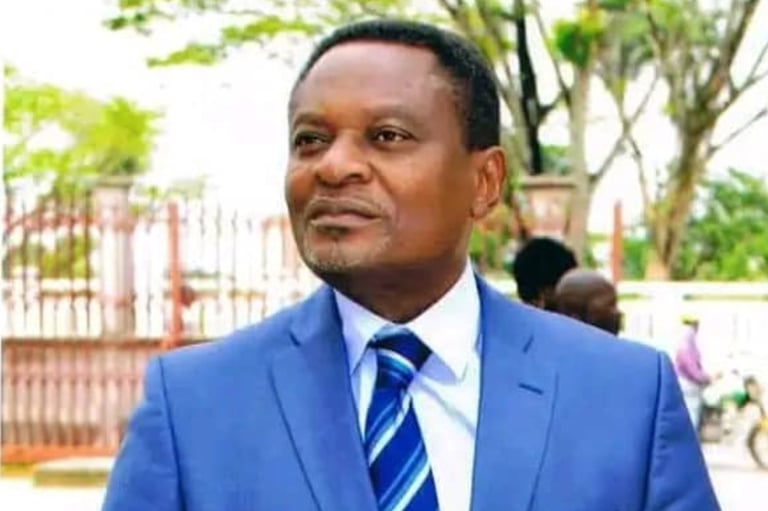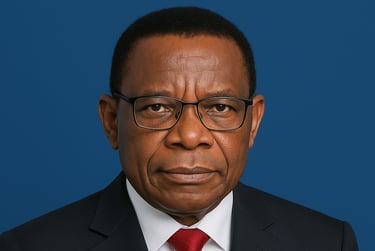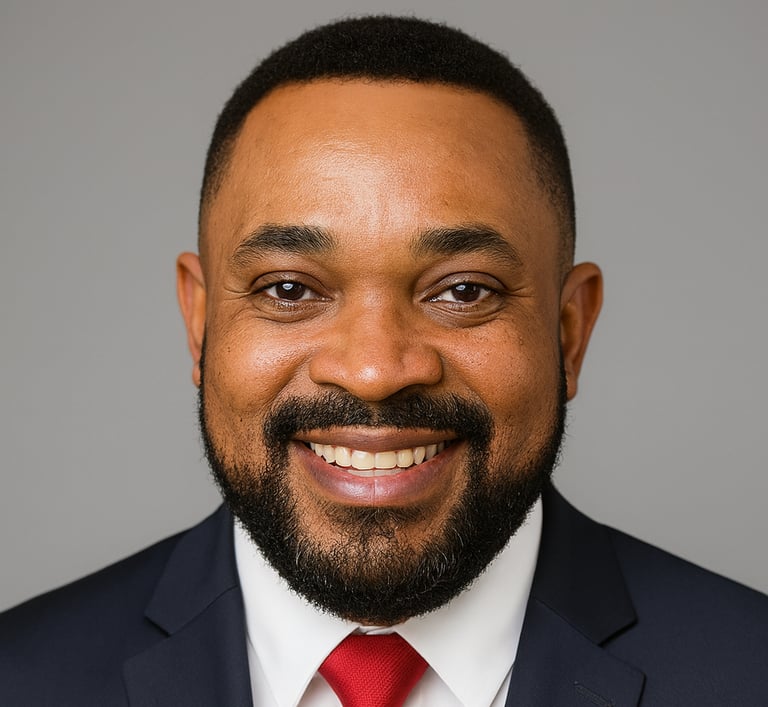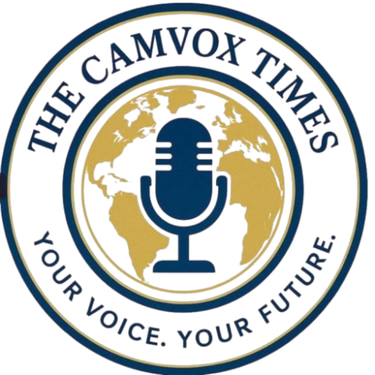Editorials & Opinions
Introduction: A Party at War With Itself
The Cameroon Renaissance Movement (CRM/MRC), long branded as a reformist force in Cameroon’s political landscape, is now embroiled in an existential crisis. What began as a tactical leadership handover has morphed into a bitter power struggle between Interim President Mamadou Yakubu Mota and founder Maurice Kamto.
Mota’s Machiavellian Moment
Niccolò Machiavelli, in The Prince, argued that “it is better to be feared than loved, if one cannot be both.”
Mota’s strategy seems to align with this dictum. By delaying Kamto’s return and appointing his own advisers, he is exercising the Machiavellian art of power consolidation — exploiting a moment of uncertainty to strengthen his hand.
Kamto’s Dilemma: Charisma Without Control
Maurice Kamto embodies what Max Weber described as charismatic authority: the leader who derives legitimacy from personal qualities, symbolic resistance, and the perception of embodying change.
But charisma is fragile, requiring constant performance and presence.
Elite Bargaining and the Northern Factor
The push by Mota to align with northern politicians reflects Vilfredo Pareto’s elite theory: politics is ultimately a circulation of elites, where factions of ruling and counter-elites compete for dominance.
By reaching toward northern heavyweights like Belo Bouba Maigari and Issa Tchiroma Bakary, Mota is signaling to Cameroon’s broader political elite that CRM can be a broker in succession politics.
The CRM in Flames:
Dr. Julius Babila Taka
September 11, 2025
Between Machiavelli, Mota, and the Political Future of Maurice Kamto


OPINION ANALYSES
Maurice Kamto’s withdrawal of his 2025 election petition shocks supporters.
Just days before the Constitutional Council is scheduled to begin reviewing electoral petitions on Monday, August 4, 2025, Cameroonians were met with an unexpected twist: Maurice Kamto has quietly withdrawn his legal challenge against the presidential process.
Yes, you read that right. The very man who for weeks stirred his followers with claims of electoral irregularities — who in 2018 falsely declared himself winner without evidence — has now stepped back from his own petition before it was even examined.
A formal letter dated July 28, 2025, signed by his lawyer Me Hippolyte B.T. Meli, confirms the withdrawal of the petition registered under file No. 69. The Constitutional Council has been formally notified. Kamto has effectively bowed out of a legal battle he once deemed essential to restoring “truth” and “democracy” in Cameroon.
What Happened to “the People’s Victory”?
For years, Kamto and his party, the MRC, have based their political narrative on alleged electoral fraud. They claimed to have won the 2018 presidential elections, a claim never substantiated in any court of law or accepted by any international observer.
And yet — here we are again in 2025, with another no-show when the moment for truth arrives.
This withdrawal is more than a procedural update. It is an admission of political hollowness. It is a betrayal of thousands of young Cameroonians who believed in his rhetoric of change. It is proof that Kamto cannot be trusted — not with the truth, not with his word, and certainly not with power.
Political Theater or Tactical Cowardice?
Kamto’s entire 2025 campaign was a replay of 2018, filled with staged outrage, grandstanding, and vague promises of an “alternative.” But when it came time to face institutions with evidence, he folded — again.
“Is this what leadership looks like?”
“Is this the man who wants to lead Cameroon through complex economic, diplomatic, and security challenges?”
He has no clear economic program. No foreign policy. No plan for national reconciliation or resolution of the Anglophone crisis. And now, no legal argument to defend his claims.
All that remains is a carefully curated personality cult, propped up by social media influencers and foreign sympathizers.
A Message to the People
To every Cameroonian — especially the youth — this moment is a wake-up call.
We must no longer be manipulated by noise without substance. The future of our nation is too important to entrust to men who speak loudly but retreat silently.
Let the record show: Maurice Kamto had his chance to prove his case. He chose to walk away.
That is not leadership.
That is not courage.
That is political cowardice dressed up as strategy.
Kamto Withdraws Legal Petition Before Constitutional Council Review
Dr. Julius Babila Taka
August 4, 2025
ELECTORAL LEGITIMACY CANNOT BE BUILT ON INTERNAL CONFUSION


Why Kamto’s Nomination by MANIDEM Must Be Carefully Examined
As the Constitutional Council prepares to rule on the presidential candidates for the October 2025 elections in Cameroon, one nomination is stirring serious legal and political controversy: that of Professor Maurice Kamto, nominated by a faction of MANIDEM led by Mr. Anicet Ekane.
Kamto’s nomination sparks legal and political debate. His supporters argue with a 14-point justification that his nomination is procedurally sound and legally binding. However, a deeper constitutional and political analysis reveals that the process is far from undisputed.
Here’s why the Constitutional Council should not validate this nomination solely based on procedural formalities.
1. Authorized Party ≠ Internal Legitimacy
Although MANIDEM appears on the official list of authorized political parties, this does not confirm its internal unity or legal legitimacy. Article 121 of the Electoral Code requires that a presidential candidate be nominated by a party in good legal and organizational standing. In MANIDEM’s case, Mr. Ekane’s leadership remains disputed and unresolved by the courts.
2. A Contested Nomination Process
Kamto’s nomination was reportedly endorsed by the party’s “Steering Committee” (CDM), created at the 2018 congress. Yet, this congress and its outcomes were challenged by other factions from the outset.
The later withdrawal of a legal complaint by Mr. Dieudonné Yebga does not amount to a court ruling. No tribunal has confirmed the legality of the CDM or recognized Ekane as the undisputed party leader. Kamto’s candidacy thus remains politically weak and legally uncertain.
3. MINAT’s Recognition Is Not a Legal Verdict
The July 17, 2018 letter from MINAT recognizing Mr. Ekane as party president is frequently cited as evidence. However, MINAT is not empowered to resolve internal party disputes—it merely acknowledges receipt of documents. Only administrative courts have jurisdiction to validate changes in party leadership.
4. Past Electoral Participation Does Not Justify Future Irregularity
That MANIDEM participated in the 2020 municipal and legislative elections under Ekane’s leadership does not automatically validate his authority in a presidential race, which demands stricter constitutional compliance. A flawed past practice cannot justify future legitimacy.
5. Silence Does Not Equal Validation
The argument that the absence of recent legal appeals equates to approval is flawed. Court inaction does not mean the matter is resolved. The Constitutional Council must assess unresolved issues, not just uncontested ones.
6. Electoral Integrity Begins with Internal Democracy
If Professor Kamto, who presents himself as a champion of electoral transparency, accepts a disputed nomination, what should voters think? One cannot call for fair elections while circumventing internal party democracy.
Conclusion: The Constitutional Council Must Exercise Caution
The Cameroonian people deserve candidates whose legitimacy is clear—not obscured by legal ambiguity or factional games. The presidency demands procedural and constitutional integrity.
The Council must go beyond appearances and assess the substantive legitimacy of nominations. It must defend constitutional order against political manipulation.
Doing what is right means rejecting confusion—and upholding the law.
Dr. Julius Babila Taka
August 4, 2025
The Political Future of Kamto
What then lies ahead for Maurice Kamto?
Several scenarios emerge: reinstatement and rebirth, symbolic figurehead, or fragmentation and exit. Unless he reasserts control, Kamto risks becoming a leader in exile — influential in rhetoric, powerless in structure.
Conclusion: The Machiavellian Choice
The CRM’s crisis illustrates the brutal truth of politics: power is rarely relinquished voluntarily.
Mota has chosen Machiavelli’s path of seizing opportunity. Kamto, meanwhile, stands at a crossroads — between reclaiming his charismatic authority or fading into irrelevance.


Journalism as a Public Trust
COMMUNITY CONTRIBUTION
A Call for Unity Beyond Borders
When we think of nation-building, we often picture government leaders in Yaoundé or policy debates in parliament. But the truth is, the diaspora plays a decisive role in shaping Cameroon’s future. Remittances support families, investments create jobs, and advocacy raises our nation’s profile internationally.
However, true impact requires more than money transfers. It requires vision. We must invest in education, youth mentorship, technology, and cultural preservation. Platforms like The CamVox Times provide the bridge between those abroad and those at home. Through transparent dialogue, investigative reporting, and community storytelling, this newspaper reminds us that change is collective.
To the diaspora, I say: let us not be passive supporters. Let us be active partners in building a Cameroon where every citizen can thrive.
— The CamVox Times welcomes guest contributions that reflect our shared mission of truth, accountability, and unity.
Dear Editor,
As a Cameroonian living abroad, I am grateful for platforms like The CamVox Times that keep us connected to the heartbeat of our homeland. Too often, our communities—both at home and in the diaspora—are divided by politics, region, or tribe. Yet, the challenges we face require collaboration, not separation.
I encourage The CamVox Times to continue amplifying voices from all walks of life. Stories of farmers, students, entrepreneurs, and community leaders should sit alongside political analysis. By uplifting every layer of our society, we remind ourselves that progress belongs to everyone.
Let us use this platform not only to report news but to foster unity, accountability, and hope for a better Cameroon.
Sincerely,
Miriam Fokou
At The CamVox Times, we believe journalism is more than headlines—it is a public trust. In an era of misinformation and political polarization, our role is to provide clarity, accountability, and balance.
We do not exist to serve one party or one agenda. We exist to serve the people. That means holding institutions accountable, highlighting grassroots voices, and ensuring that the diaspora remains connected to the realities on the ground.
Our staff is committed to truth, transparency, and cultural pride. We reject sensationalism and embrace responsible reporting. To our readers: your trust is our most valuable asset, and we will guard it fiercely.
— The CamVox Times Editorial Board
Diaspora Leadership: Investing in Tomorrow’s Cameroon
SPECIAL GUEST:
Dr. Emmanuel N. Tande, PhD
Letter to the Editor:


Meet the Team
Founder & Editor-in-Chief, Dr. Julius B. Taka
Dr. Julius B. Taka is the driving force behind The CamVox Times, serving as its Founder and Editor-in-Chief. A political scientist, leadership consultant, and media executive from Cameroon now based in the U.S., Dr. Taka has written most of the articles featured on this platform.
With advanced degrees in Political Science and Christian Organizational Leadership, he brings a unique blend of academic insight and practical experience. Over the years, he has held leadership roles in both Cameroon and the United States, including political campaign management, community advocacy, and peacebuilding initiatives.
Beyond politics and media, Dr. Taka is known as a bridge-builder between cultures and communities. His leadership work spans grassroots politics, diaspora engagement, and international collaboration. He has also been recognized with awards for his contributions to diaspora leadership and social impact.
Through The CamVox Times, Dr. Taka continues his mission of amplifying voices, promoting unity, and fostering dialogue across borders.
